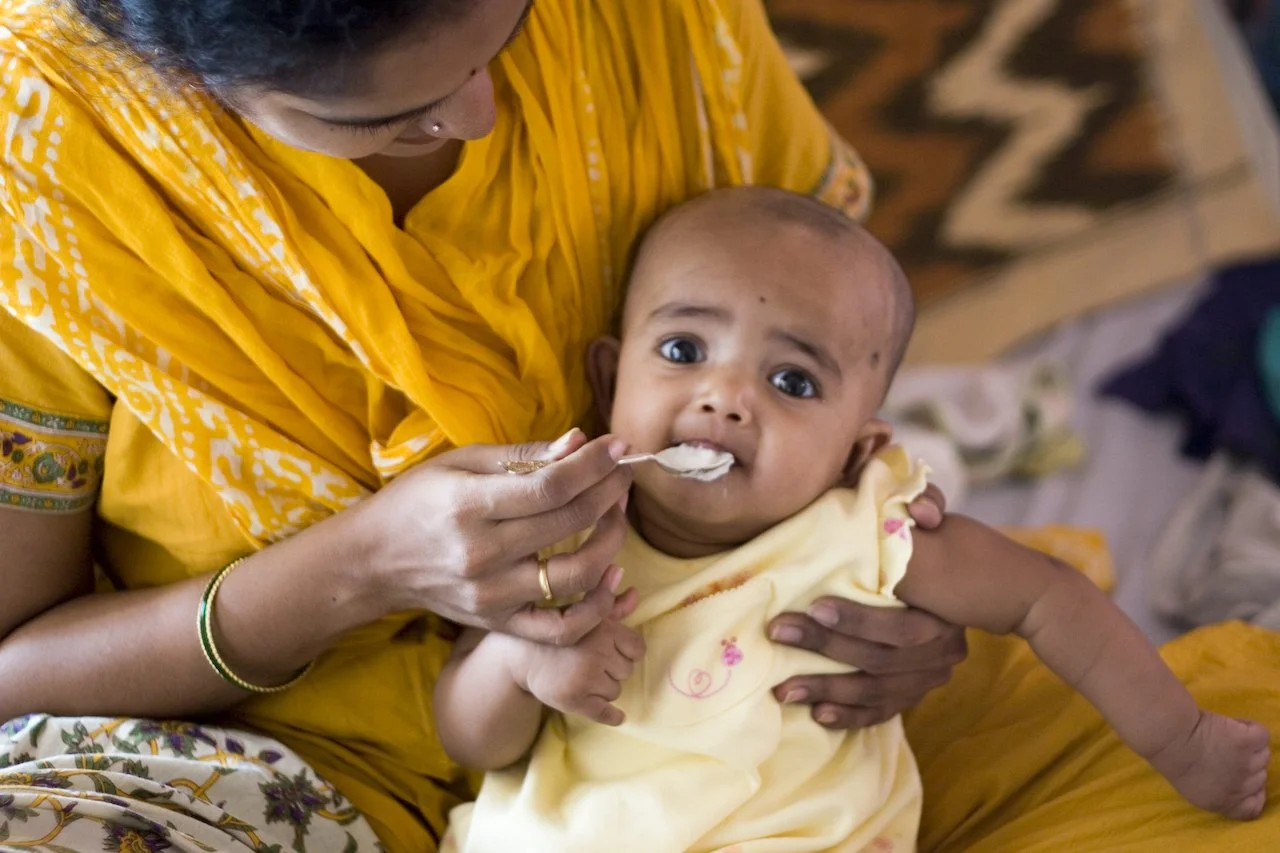Infant and Child Feeding Practices Study (India)
In collaboration with HCJMRI (Pune, India), we are conducting a mixed methods study to understand infant and child feeding practices in India. Led by Dr. Rubina Mandlik, the first culturally-appropriate infant and child feeding practices tool is being developed.
Residents of urban slums in India experience a range of challenges with infant and child feeding practices which contributes to unhealthy diets and high malnutrition rates. However, the reasons remain unclear as research to date has not considered the influence of cultural contexts. Thus, this study aims to identify appropriate measurement tools, and qualitatively explore the complementary feeding practices of caregivers with children aged 1-2 years residing in slums in Pune, India.
Preliminary focus group results (n=17) with mothers and paternal grandmother dyads indicated that caregivers were aware that complementary foods should be introduced only after 6 months, but in practice, they started between 4 to 8 months. Financial constraints influenced food choices, and unhealthy food consumption was pervasive. Information sources were mainly family, neighbors, and limited media, with minimal guidance from health professionals.
This research points to a strong need for a systems thinking approach to support caregivers to adopt appropriate feeding practices, by not only equipping them with the right information, but also implementing policies to create healthy food environments which reduce caregiver burden to provide nutritious meals.
This project contributes to the following Sustainable Development Goals:
SDG 3 (Good health & wellbeing)
SDG 5 (Gender equality)
SDG 10 (Reduced inequalities)

